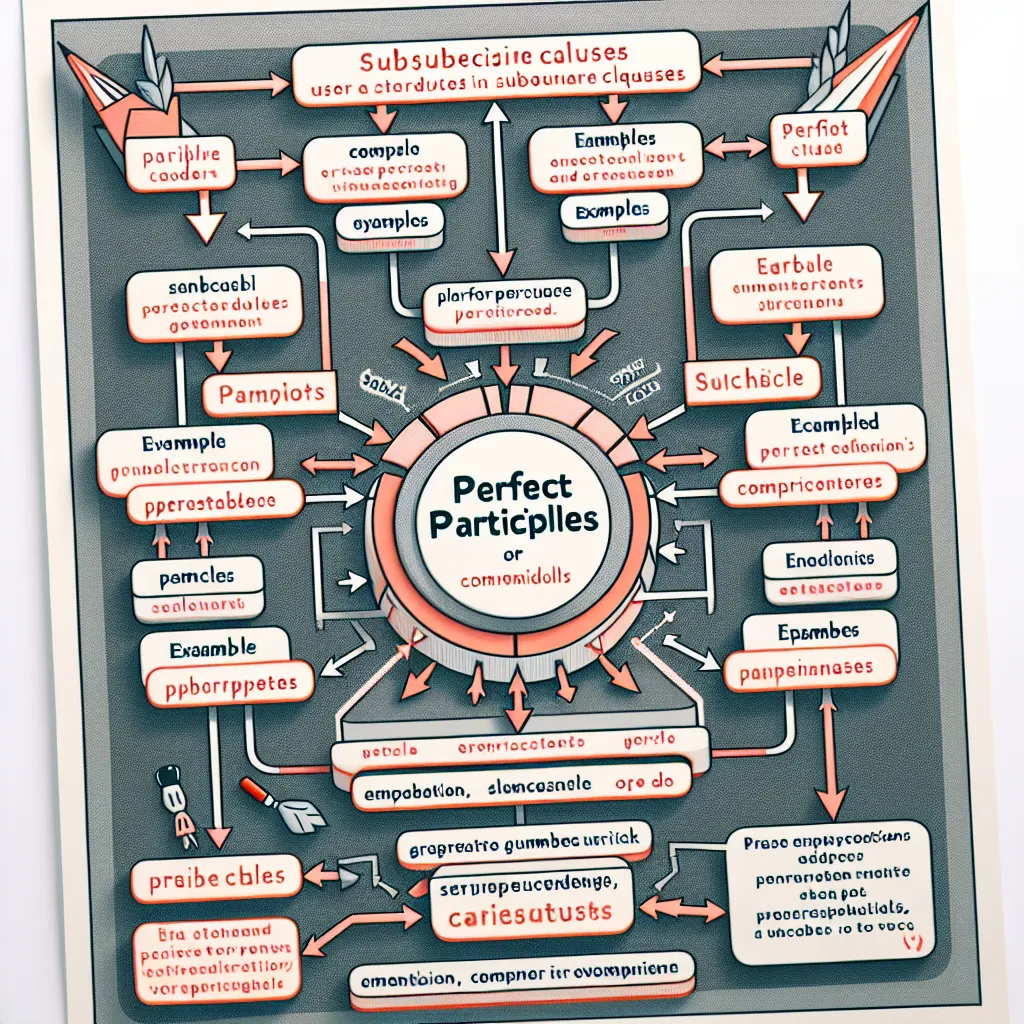Perfect participles in subordinate clauses are an advanced grammatical structure that can significantly enhance your IELTS performance. These constructions demonstrate a high level of English proficiency and can help you achieve those coveted Band 7+ scores in both Writing and Speaking sections. Let’s delve into how you can master and effectively utilize perfect participles to impress IELTS examiners.
Understanding Perfect Participles in Subordinate Clauses
Perfect participles are formed by using “having” + past participle. They are used to show that one action was completed before another action began. In IELTS, using perfect participles can help you express complex ideas more concisely and demonstrate a sophisticated command of English grammar.
Examples:
- Having finished her homework, Sarah went to bed.
- The scientist, having conducted extensive research, published his groundbreaking paper.
- Having lived abroad for several years, he found it easy to adapt to new cultures.
- The company, having invested heavily in new technology, saw a significant increase in productivity.
- Having been warned about the storm, we decided to stay indoors.

Incorporating Perfect Participles in IELTS Writing
Task 2 Essays
Using perfect participles in your IELTS Writing Task 2 essays can help you achieve a higher score for grammatical range and accuracy. Here’s how you can incorporate them:
-
In introduction paragraphs:
“Having considered the various aspects of this issue, I believe that the advantages outweigh the disadvantages.” -
In body paragraphs:
“Having experienced the benefits of remote work firsthand, many employees now prefer flexible working arrangements.” -
In conclusion paragraphs:
“Having examined both sides of the argument, it is clear that a balanced approach is necessary.”
Task 1 Reports
While less common in Task 1, perfect participles can still be used effectively:
“Having reached its peak in 2010, the population growth rate began to decline steadily over the following decade.”
Enhancing Your IELTS Speaking with Perfect Participles
Incorporating perfect participles in your IELTS Speaking responses can demonstrate your advanced language skills:
-
Part 2 (Cue Card):
“Having grown up in a small town, I found moving to a big city quite challenging at first.” -
Part 3 (Discussion):
“Having studied this topic in depth, I can say that there are several factors contributing to urban migration.”
Common Mistakes to Avoid
-
Incorrect verb form:
Incorrect: “Having went to the store…”
Correct: “Having gone to the store…” -
Misplaced modifiers:
Incorrect: “Having finished the report, the computer crashed.”
Correct: “Having finished the report, I was dismayed when the computer crashed.” -
Overuse:
While perfect participles can enhance your writing, overusing them can make your language sound unnatural. Use them sparingly and strategically.
Strategies for Mastering Perfect Participles
- Practice identifying perfect participles in reading passages.
- Transform simple sentences into complex ones using perfect participles.
- Create a list of common verbs in their past participle form for quick reference.
- Use perfect participles to combine sentences in your writing practice.
Perfect Participles vs. Other Advanced Structures
To achieve higher band scores, it’s essential to compare perfect participles with other advanced grammatical structures:
-
Perfect participles vs. Past perfect tense:
- Perfect participle: “Having finished her work, she went home.”
- Past perfect: “After she had finished her work, she went home.”
-
Perfect participles vs. Reduced relative clauses:
- Perfect participle: “Having lived in Paris for years, John speaks fluent French.”
- Reduced relative clause: “John, who has lived in Paris for years, speaks fluent French.”
-
Perfect participles vs. Adverbial clauses:
- Perfect participle: “Having studied all night, Sarah felt confident about the exam.”
- Adverbial clause: “Because she had studied all night, Sarah felt confident about the exam.”
Conclusion
Mastering perfect participles in subordinate clauses can significantly enhance your IELTS performance. By incorporating these structures into your Writing and Speaking responses, you demonstrate a sophisticated command of English grammar, which can help you achieve those higher band scores. Remember to practice regularly and use perfect participles judiciously to make your language more concise and elegant.
To further improve your skills, try rewriting some of your previous IELTS essays or speaking responses, incorporating perfect participles where appropriate. This practice will help you internalize the structure and use it more naturally in the actual test.